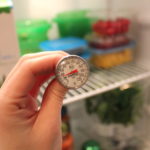When it comes to cancer, breast cancer is one of the most dreaded forms for women. Cancer is a health condition that arises when there are abnormal developments in cells that create tumors, and when cells divide at the same time without dying like normal cells, they accumulate and grow into a mass and gradually invade, causing metastasis.
On many websites, there is a rumor that women with larger breasts have a higher risk of breast cancer compared to women with smaller breasts. This has caused a lot of anxiety among many people.
According to the response of Dr. Huynh Ba Tan, MD, of the Breast Surgery Department at Tam Anh General Hospital, Ho Chi Minh City, there is no correlation between breast size and breast cancer.

The truth is that large breasts may cause women to experience breast pain or shoulder and neck fatigue, especially when wearing ill-fitting bras that do not provide enough breast support. However, this breast pain is not the cause of cancer.
Large breasts can also pose difficulties in the self-monitoring and early detection of breast cancer at home. Because larger breasts with more fatty tissue may cause women to overlook hidden lumps, making them difficult to detect by touch. When taking mammograms, dense breast tissue appears as a solid white area on the X-ray film, making it difficult to detect lesions in the breast. Therefore, large breasts may affect the self-examination process for early detection of breast cancer, but they are not the cause of cancer.
Important factors that increase the risk of breast cancer in women
Although there have been advancements in the treatment of breast cancer, it still remains a terrifying nightmare for many women.
One of the high-risk factors for breast cancer is dense breast tissue. Breast tissue consists of milk glands, ducts, connective tissue, and fatty tissue. Women with dense breast tissue have more connective tissue (fibrous tissue that supports keeping other tissues in place) compared to fatty tissue. Women with breast tissue density higher than 75% have a 4-6 times higher risk of developing breast cancer compared to other women.
In addition, there are other additional factors that increase the risk of breast cancer, including gender (female), older age, family history, gene mutations such as BRCA1, BRCA2, obesity, sedentary lifestyle, alcohol consumption, early puberty, late menopause… which affect hormone imbalances and increase the risk of breast cancer.

The phenomenon of uncontrollable weight gain and obesity after menopause is also a factor that increases breast cancer risk in women. This is because obese individuals have androgen metabolism from the adrenal glands into estrogen. Estrogen is closely related to the process of breast cancer formation. Body weight and body mass index (BMI) are also related to breast cancer.
Therefore, to prevent breast cancer, women need to control their weight, lifestyle, and nutrition. A family history of cancer is also a negative factor, however, if a healthy lifestyle, proper activities, scientific eating, and a cheerful spirit are maintained, the risk of cancer can be reduced.
Unveiling the Miraculous Benefits of Mushrooms
From the savory flavor they offer in dishes to their vast array of health benefits, mushrooms are a major force in the culinary world. Not only are they known as a delicious ingredient in countless recipes, but their impressive benefits can help to fight obesity, high blood pressure, and even cancer prevention.





































